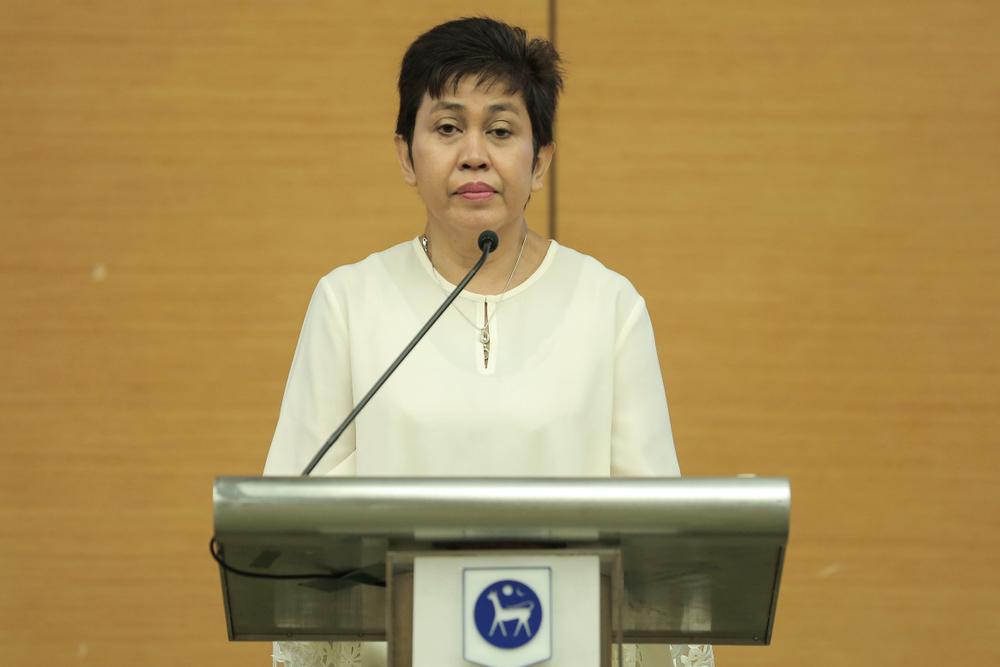Malaysia’s Value-based Intermediation banking guidelines welcomed by industry as step forward for Islamic, sustainable finance
KUALA LUMPUR - Bank Negara Malaysia (BNM), the central bank, today unveiled guidance documents for the practical adoption of the Value-based Intermediation (VBI) framework and scorecard for public feedback, which commentators across the responsible finance and Islamic banking community told Salaam Gateway is a step forward towards regulator-backed sustainable finance.
The guidelines, crafted by BNM in partnership with nine Malaysian Islamic banks that make up the so-called VBI Community of Practitioners (CoP), goes beyond financial returns to also measure the positive and sustainable impact of Shariah-compliant banking to the economy, community and environment.
BNM governor Nor Shamsiah Mohd Yunus said in her address at the launch of the guidelines that the adoption of VBI by the industry is to "clearly identify Islamic finance with sustainable practices”.
“We expect that over time, the adoption of VBI will have a significant impact on business models of Islamic financial institutions, including the drivers of profitability and risks,” said Mohd Yunus.
The VBI’s introduction in a July 2017 strategy paper came at a point when the asset growth of Malaysia’s Islamic banks was on the decline. Asset growth had dropped from around 26 percent in 2011 to around 9 percent in 2016, the last full year before the introduction of the VBI strategy, according to Salaam Gateway calculations based on BNM data.
“VBI-oriented Islamic financial institutions can, and indeed should, also play an important role in mobilising resources to finance climate change mitigation and adaptation initiatives,” added the BNM governor.
The VBI is also seen as Malaysia’s attempt to transition its Islamic finance industry from being ‘merely’ Shariah-compliant to becoming Shariah-based, whose approach is aligned with the goals of Shariah that seek to protect and preserve the benefits and interests of society and the acquisition of wealth in a fair, transparent and accountable manner.
Most Shariah-compliant financial products and services are criticised for originating from conventional finance but are structured in such a way that they comply with Shariah in form, but not spirit.
Association of Islamic Banking and Financial Institutions Malaysia (AIBIM) president Adissadikin Ali told Salaam Gateway Malaysia’s Islamic banks look forward to having the VBI scorecard.
“This is another step forward whereby through the scorecard, Islamic banks that subscribe to the VBI principles do not only voluntarily express their intent to the public but would also voluntarily measure and report their performance in converting these intents into practice,” said Ali.
The VBI is currently a voluntary initiative that Malaysian banks are not obliged to adopt. It will be initially implemented by the nine banks that make up the CoP. The nine are Agro Bank, Alliance Islamic, AmBank Islamic, Bank Islam, Bank Muamalat, CIMB Islamic, HSBC Amanah, Maybank Islamic, and Standard Chartered Saadiq.
“As an industry, we see the value that VBI brings in driving sustainability across the dimensions of people (society), planet and profit. In short, by adopting and practising the VBI principles, the Islamic banking industry can offer a viable and sustainable solution to meet the financial needs of the society at large,” Ali added.
IMPACT ON PROFESSIONAL WORKFORCE
Badlisyah Abdul Ghani, president of the Chartered Institute of Islamic Finance Professionals (CIIF), told Salaam Gateway the VBI scorecard would require “significant transformation” of the desired and required competencies of professionals in Islamic finance.
“We need professionals that are not only competent in finance and its attendant commercial attributes but also in engineering, biodiversity, sociology, ecology and the likes to ensure that activities facilitated and intermediated by Islamic finance supports the sustainable development goals (SDGs) and meets the objective of Shariah to prevent harms and to maximise benefits for all mankind,” said Abdul Ghani.
He added that the VBI is embedded in CIIF’s professional qualification program.
START FOR POTENTIAL GLOBAL EXPANSION
Blake Goud, CEO of thinktank the Responsible Finance & Investment (RFI) Foundation noted that the nine Islamic banks in the CoP account for 70 percent of Islamic banking assets in Malaysia, but only 7 percent of global Islamic banking assets.
“There’s a lot of work that can be done from here on to expand VBI across Islamic finance globally,” Goud told Salaam Gateway.
“It’s really good to see such leadership from a central bank in putting out this framework and helping Islamic institutions demonstrate their commitment to sustainable and responsible finance,” he added.
The guidelines for the VBI scorecard outline a ‘triple bottom line’ evaluation approach focused on: social empowerment (education, health care, social inclusion, affordable housing); environmental regeneration (renewable energy, sustainable agriculture, green building, energy and water efficiency); and economic resilience (micro financing and economic inclusion).
“They all have financial relevance, so I think this is broadening the focus of financial institutions when they are considering a more holistic picture of what determines long-term outcomes. Environmental and social issues have an impact on the bottom line, so Islamic banks are getting a better picture on that,” said Goud.
Goud also welcomed VBI guidelines that outline a commitment to gender diversity within the management of financial institutions, as well as linked deliverables to the United Nations’ Sustainable Development Goals (SDGs).
(Reporting by Stephanie Augustin; Editing by Emmy Abdul Alim emmy.alim@thomsonreuters.com)
Our Standards: The Thomson Reuters Trust Principles
© SalaamGateway.com 2018 All Rights Reserved

Stephanie Augustin